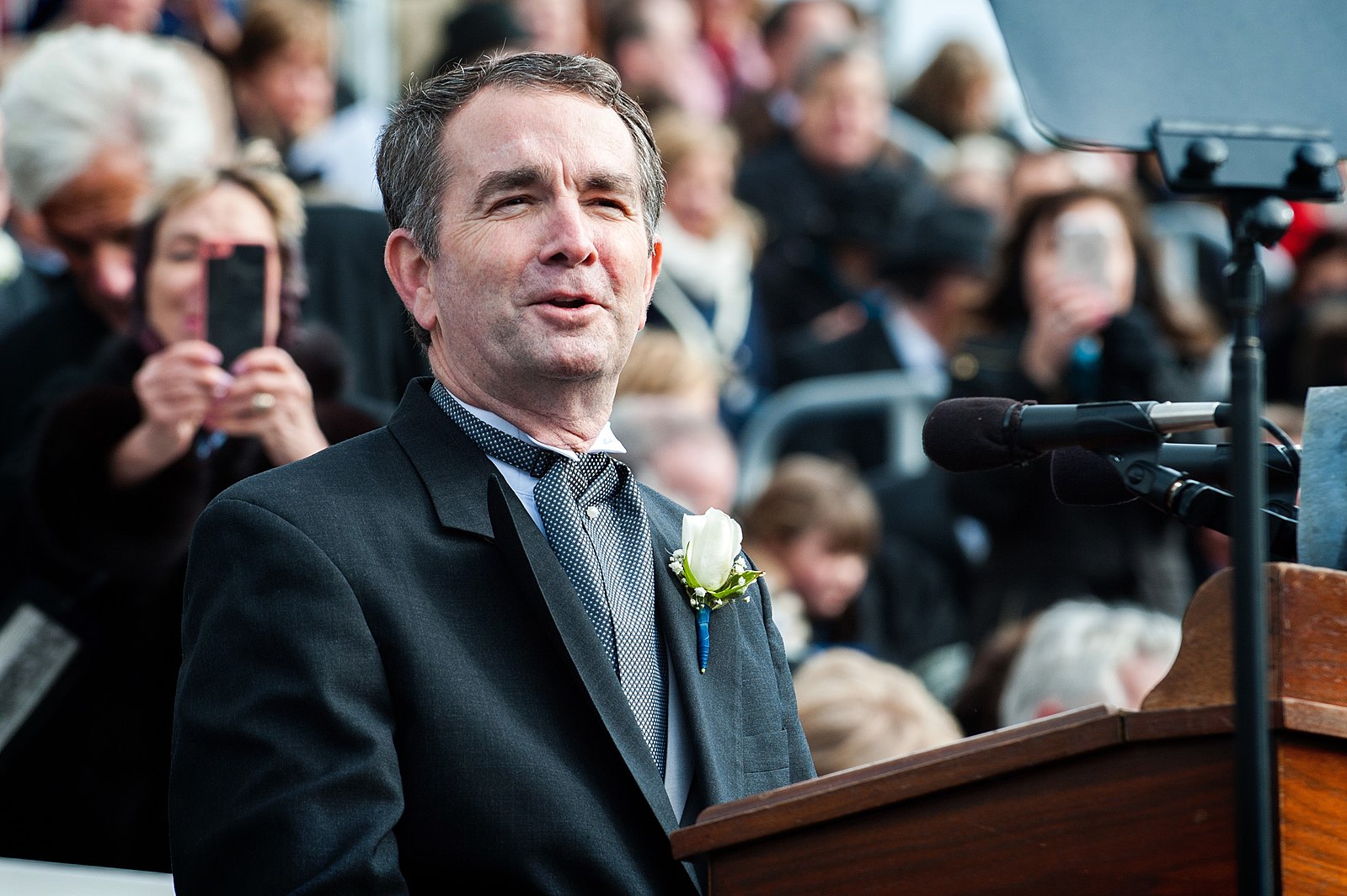On a fictional presidential debate stage, President Bartlet of “The West Wing” made a bold assertion: “Every once in a while, there’s a day with an absolute right and an absolute wrong. But those days almost always include body counts.”
After this past weekend, Virginians like myself can confidently offer up an amendment: even in the absence of death or destruction, sometimes those days include a medical school yearbook photo of a governor in blackface and a pal with a white hood.
That’s right: my beloved state’s Democratic governor, who took home 87 percent of the state’s black vote in his gubernatorial election, also appears to have been nicknamed “Coonman” during his tenure at the Virginia Military Institute.
Whether or not Governor Northam eventually makes the honorable choice and resigns, the photo’s unearthing will effectively end his political legitimacy – rightly so. And yet, despite the complete, utter, absolute wrongness of this behavior, I still found myself hearing an argument perennial in situations like these: it was 1984. Think about the context. Times have changed.
Notwithstanding the fact that donning Klan robes is – and was widely known to be, in 1984 – unconditionally impermissible in any decade, the notion that evolving standards of decency should lead us to excuse past behavior troubles me, particularly when applied to public officials.
I fully understand that people change as times do, and that categorically dismissing individuals with evolved perspectives because of former beliefs would be counterproductive. At the same time, I cannot shake the sense of betrayal I feel at having invested time and effort into the political prospects of a man who knew about his deeply offensive actions – however far removed from them he considers himself to be – and still chose to run for the highest office in a state with a particularly salient history of racial injustice.
The fact remains: irrespective of the “social acceptability” of blackface and other displays of racism at the time this photo was taken, its harm reverberates deeply in the present. It is not only that Governor Northam’s failure to disclose his past shattered the trust of the Virginians who elected him (and all those he represents). The act itself, despite the 35 interceding years, causes pain and harm just as real in 2019 as in 1984.
I know that many of my peers are conscious of the ways in which their current actions might be judged in 15 or 20 or 40 or so years, particularly if they plan to run for elected office or otherwise enter the public sphere. We don’t know how public opinion will develop over time, what possibly-questionable actions might become widely chastised or escape criticism.
In the spirit of President Bartlet’s prime-time remarks, I’m going to make a bold assertion of my own: It doesn’t matter.
The potential for harm stemming from any particular action is not constrained by its potential to draw criticism. The question we should be asking is not, will this action (or article, or speech, or statement, or costume) be frowned upon in 2036? The question must always be, how might my behavior hurt those around me, regardless of the likelihood of social opprobrium now or in the future?
At times we will inevitably fail at living up to this standard, and we will work hard to become better – to understand better, to empathize better and to do better the next time around. But if we seriously commit ourselves to minimizing the pain we cause each and every day, we can spend our careers making the world better instead of making excuses. What this generation of future leaders needs is not foresight into the minds of voters 20 years from now, but a highly sensitive moral compass that will endure the evolution of public opinion.
Contact Jackie O’Neil at jroneil ‘at’ stanford.edu.
